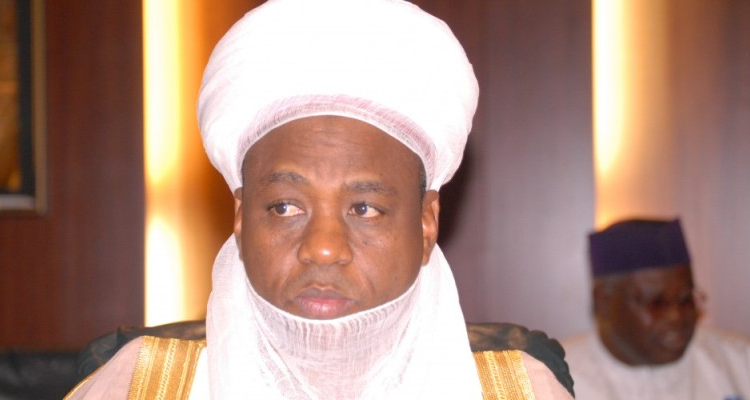The Sultan of Sokoto, Muhammadu Sa’ad Abubakar 111, is one of the foremost royal fathers in Nigeria today. As the President-General of Nigeria Supreme Council for Islamic Affairs (NSCIA), he is also the acknowledged leader of all Muslims and he has a fanatic followership in the country and even beyond.
As a former army officer, he speaks only when it is absolutely necessary because he knows the weight and influence of every word he utters. That explains why his public comments are measured and direct regardless of the feelings of those in power.
Presently in the country, hardship is the name of the air Nigerians breathe. For almost a year, the nation has been engulfed in needless energy crisis with the price of fuel, for both the transportation sector and domestic use, hitting the roof. Expectedly, cost of transportation across all means – land or air- is frustratingly prohibitive.
To compound an already bad situation, suddenly and, without warning, Nigerians no longer have access to their own money. The policy of re-designing the national currency is inflicting on Nigerians, regardless of social status, the kind of hardship that is so unprecedented. Before now, businesses and individuals talk about buying foreign currencies like the dollar with Naira. That luxury is suspended as the new arrangement is buying Naira with Naira.
At moments like the one the nation is embedded, one would expect a leader like the Sultan to speak out. He has not disappointed. He did not coat his words in innuendos or parables. The royal father went straight to the point to warn the political leaders that Nigerians may have reached the end of their tethers.
Nigerians May Rise Up Against Their Leaders, Sultan Warns
In his opinion, the apparent refusal of the country’s leadership, as presently constituted, to address the plight of Nigerians, is likely to be a prescription for civil unrest. The Sultan did not mince words when he said that if nothing was done to douse the tension caused by insecurity, scarcity of new Naira notes, the inadequate supply and high cost of fuel, the citizens may have no other option than to begin to take the law into their own hands so as to assuage the hurt they feel. It must not be forgotten that citizens power is the real power.
In government circles, the reaction to the Sultan’s comment is that it is inciting. The religious leader is not in the business of inciting people. He is more concerned about the welfare of the people he leads. He receives complaints on a regular basis and, therefore, owes himself a duty to bring those complaints to the political leaders who are, under normal circumstances, in a better position to address and find solution to them.
It must be understood that the royal father is actually lending his weighty voice to the pervasive opinion among Nigerians who are beginning to be worried about the failure of governance at all levels. Nigerians, in their state of helplessness, marvel at the level of despondency in government circles. They are disturbed by the ominous indifference on the part of authority to the anguish they are exposed to.
The annoying aspect of what is going on is that the politically exposed persons are carrying on as if everything is normal. Their main concern is the chance to continue to hold on to power. It is so disheartening, in our considered opinion, that on the eve of a major election, this kind of pain is deliberately inflicted on the people. That is what the Sultan is worried about too.
It is not just the royal father, even in political circles, some senior office holders, like Nasir el-Rufa’I, the Governor of Kaduna state, the political capital of the North, is convinced that the hardship Nigerians are going through is contrived to create a political stalemate that may lead to the collapse of the polity. For him, this could be part of a plot to elongate this administration using the instrumentality of an interim government. It has happened before. El-Rufa’i is well- informed because he belongs to the inner caucus of the political establishment.
If that is the thinking, those harbouring such devious thoughts should perish it. They deserve to be well advised to revisit the June 12 episode in the nation’s political and democratic evolution. The military with all their perceived might could not pull it through.
In our view, Nigerians have restrained themselves so far because they have the means to remedy their situation. That is to say, their vote, starting from February 25, will decide actually who holds the lever of power.
We are aware that President Muhammadu Buhari has already set up a transition committee, an indication that he is ready to go. That, in our view, is not a fool-proof guarantee that the interim nonsense is off the table. What this means is that unlike in the Babangida era, Nigerians will not be taken by surprise. Not again.
We are compelled, therefore, to urge this administration to heed the warning of the Sultan and save the nation needless hiccups that may be injurious to the democratic process.





